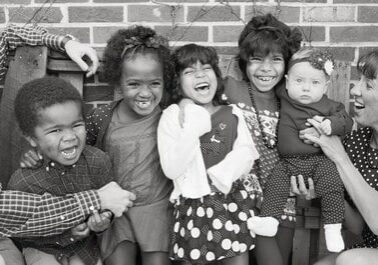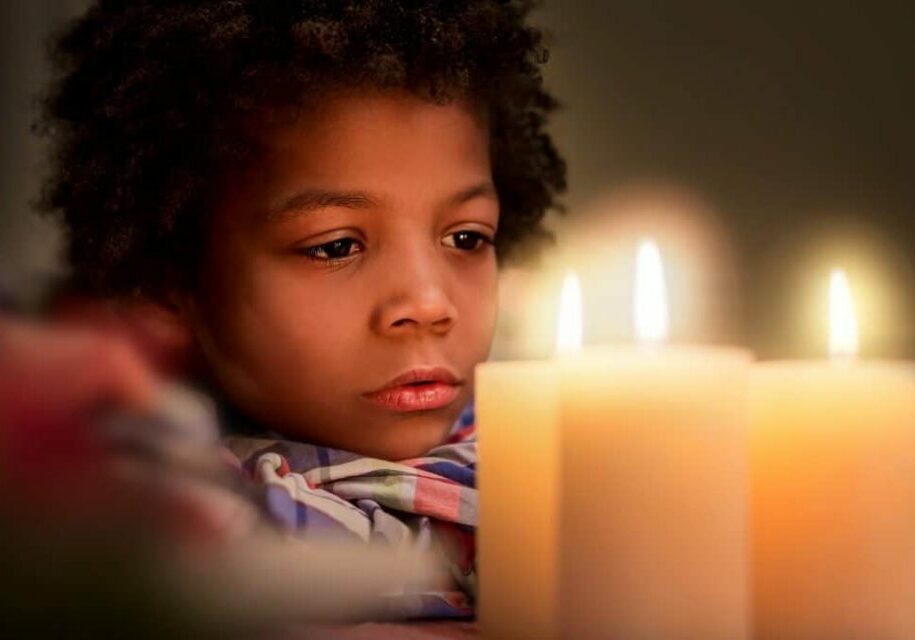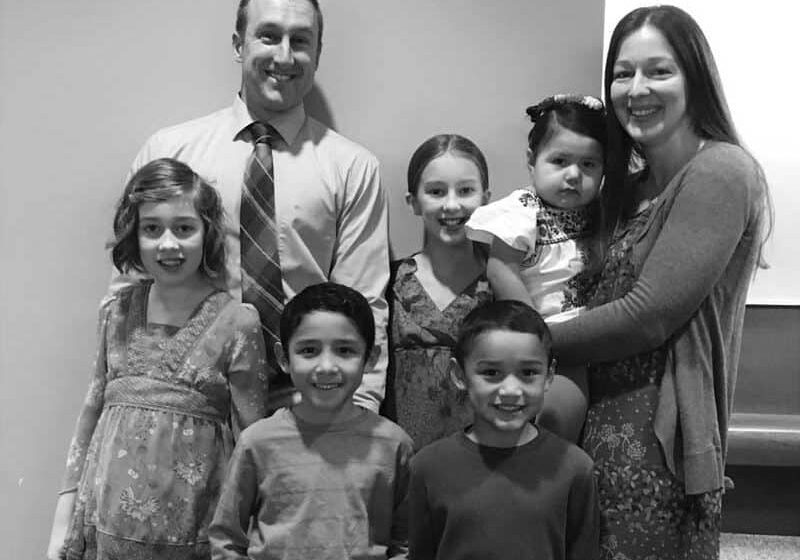by Craig Belford
As a faithful follower of Christ, I know and believe that God is sovereign. That God is good. That God never leaves us or forsakes us. Indeed, the scriptures are filled with testimonies to each of these divine attributes.
Of his sovereignty, the Psalms teach that “Our God is in the heavens; he does all that he pleases,” and that “Whatever the Lord pleases, he does, in heaven and on earth, in the seas and all [the] deeps.”
Of his goodness, the Psalms invite us again and again to “praise the LORD, for the LORD is good;” to “give thanks to the Lord, for he is good;” and to “taste and see that the Lord is good.” And in Psalm 145, David teaches that ‘The Lord is good to all, and his mercy is over all that he has made.”
Of God’s presence, there is no better testimony than Psalm 23, where we learn that the Lord is our shepherd; that, even when we walk through the valley of the shadow of death, he is with us and his rod and his staff comfort us; and that as enemies press in, he prepares a table before us – anoints our heads with oil, and fills our cup until it runs over.
Together, these passages, and countless others like them, reveal to us a God who is sovereign over all things; a God who is always and only good; a God who is always with us and who, as Scripture reminds us, will never leave us nor forsake us. We know these things are true, and they serve as the very foundation of our faith.
And yet.
Despite these undeniable truths, I sometimes find myself in circumstances where ideas like this don’t make sense and are just plain hard to believe. Where God appears not sovereign but powerless; not good but indifferent; not an ever-present help but a lingering absence.
Where life has turned upside down, and nothing makes sense, and the darkness never seems to lift.
And instead of joining the Psalmist in praising the Lord, I find myself asking with the Psalmist, “Why, O Lord, do you stand far away? Why do you hide yourself in times of trouble?”
Or “How long, O Lord? Will you forget me forever? How long will you hide your face from me?”
Or “My God, my God, why have you forsaken me? Why are you so far from saving me, so far from the words of my groaning?”
This latter place – this place of wondering why God is so far away – is a place I have often visited as we’ve walked our adoption journey. But God inevitably delivers me from that place. And the story of how he did that in perhaps our darkest moment of all is the story I would like to share.
Our family’s adoption journey began as my wife Kat and I were walking out of the film Courageous. As we were heading to our car, our Safe Families caseworker called asking if we would be willing to accept a 10-month-old girl who needed a safe place to stay for a few weeks.
Our first instinct was to decline, as we had just come off a very challenging placement, and we weren’t sure if we were ready to start another one so soon. But then we remembered that God had called us to care for children such as these, and we asked ourselves if there was any compelling reason to say “No.” Not finding one, we said “Yes.”
The next afternoon, Eden entered our lives.
Over the next few months, it became clear that the challenges facing Eden’s mother were much deeper and much more complicated than anyone first realized. And within a few months, Eden’s mother asked us if we would be willing to adopt Eden. Needless to say, this request threw us for a loop, as adoption was not on our radar at this point. But after an intense and agonizing week of conversation and prayer, we agreed to accept that request. We would adopt Eden
So for five months we traveled full-speed down the adoption road. We hired an agency, filled out mountains of duplicative paperwork, submitted to background checks and fingerprinting, sat for several rounds of interviews, paid large (non-refundable) fees, and attended numerous training sessions. We converted my home office back into the bedroom it was meant to be, complete with crib and pink blackout curtains. We planned our summer vacation to Florida, and we purchased six airline tickets instead of the usual five.
Throughout all of this, Eden remained with us in our home, becoming every day a deeper and deeper part of our family.
Then, one Tuesday afternoon, with our home study complete, our license issued, and only one piece of paper left to be signed before the adoption petition could be filed, Eden’s mother changed her mind. And with only 18 hours’ notice, we had to pack up and say goodbye to the little girl who had lived in our home for the last eight months, who we had loved and treasured as our own, whom we had been assured and very much believed would be our daughter forever.
So that is what we did. The next day, we kept our children home from school, and we all enjoyed one last morning playing in the yard with Eden. Then, after lunch, we put Eden in the arms of a social worker who drove her to Chicago, where she was given to a great-aunt who lived out of state. It was then that we were told that, in all likelihood, we would never see or hear anything about Eden again.
For two long months, that was the reality we lived in.
Now in this place, it would have been very easy to ask, as David asked so many centuries ago, “My God, my God, why have you forsaken me? Why are you so far from saving me, so far from the words of my groaning?” But miraculously, I did not go to that place.
Don’t get me wrong. I grieved Eden deeply. I ached, and I cried, and I prayed daily for her return. And that was appropriate. God made us with feelings, and we should meet and experience those feelings when they come.
But I did not despair, or shake my fist at God, or ask how a good God could permit such a thing to a happen. And I was kept from those things not by any resource or wisdom of mine, but because in his perfect timing and grace, God prepared me for this very moment.
The promise, of course, is contained in Romans 8:28, that “in all things God works for the good of those who love him, who have been called according to his purpose.” Reciting that promise is easy. But claiming and resting in that promise when everything falls apart – that’s the challenge, and one I suspect we all have faced at one time or another.
And yet, just a few weeks before we received that awful phone call, God equipped me to do exactly that – to claim the promise of Romans 8:28 – through a beautiful illustration, culled from the stuff of everyday life.
Just a few weeks before Eden’s mother changed her mind, Kat and I took Eden at Central DuPage Hospital for a minor surgical procedure. Eden had suffered from chronic ear infections since birth and needed to have tubes put in. Although a very minor surgery, it was invasive and required general anesthesia (and everything that comes with that).
And so we found ourselves in a surgical prep-room at something like 5:00 in the morning with a very hungry and still-pajamaed Eden. It was then that I sensed God whispering to me, “Pay close attention this morning, Craig. There is something I would like to teach you.” From that moment forward, I began to view the morning’s events from a very different vantage point. In real time, a very clear picture of who God is came into focus, and with it a whole new understanding of how God can remain sovereign, good, and close – even in our suffering.
This is what I saw: From Eden’s perspective, that morning was one in which her parents abandoned her to strangers who hurt her. Think about it, from her limited, not-yet-two-year-old vantage point: all she could possibly process was that the two people she trusted most in the world to take care of her and to protect her instead handed her over to strangers who took her clothing, withheld her breakfast, poked her with needles, and did all kinds of other scary things to her that she was entirely powerless to prevent.
And when it was scariest of all, in the operating room itself, with its strange sounds, and bright lights, and faceless masked figures coming at her from every direction – when she cried out to us in that place – not only did we not come, but we were nowhere to be seen. We had left her utterly alone.
And when the surgery was over, as her eyes slowly opened and she was disoriented and scared and alone, she reached out for me and called my name. But I wasn’t there, and I did not respond.
Now consider that same morning from my and Kat’s perspective. We knew that Eden was sick, and that her chronic pain would not go away on its own. And so because we loved her, we allowed her to experience the pain and fear of surgery – because we knew that, through those very things, she would be healed.
There was no way Eden could know it then, but all the while we knew that however bad today was, tomorrow Eden would wake up for the first time without any pain in her ears, and hearing better than she had ever heard before.
We knew that, in those scary moments in the operating room, when she looked for us but couldn’t find us, that we were near, only one room over, loving her and praying for her and in everything working for her good.
And perhaps most beautiful of all, after the surgery, when she was coming out of the anesthesia and was scared and screaming and disoriented, even as she continued to cry out and look for me, still convinced that she was utterly alone – she had no idea that she was already in my arms. That I was holding her closely, rocking her gently.
In that moment, in that place, Eden could not know any of this. But a day will soon come when she grows up, and she will hear about the time that we took her to the hospital to have tubes put in her ears, and about how she cried and cried and didn’t understand anything that was happening. And she will smile. Because now mature, she will understand perfectly. She will remember none of the pain or fear, and she will think only, “Of course that’s what you did – because you’re my parents, and you love me.”
This is the glimpse of himself that God so graciously gave to me that morning. And with it he invited me to believe and to trust that he loves us the very same way. That even when everything seems to be spinning utterly out of control, he is working. That even when I see only darkness and evil, he is bringing about something good. And that even when he seems utterly absent, he is nearby, and perhaps even holding me.
And best of all that one day, when I am fully grown, I will look back at the times when I was afraid and hurting and feeling utterly forsaken, and I too will smile B because I will understand perfectly. I will remember none of the pain or fear, and I will think only, “Of course that’s what you did – because you’re my Father, and you love me.”
Because if Eden’s perspective can be so limited in relation to her earthly father, how much more limited is my perspective in relation to my heavenly Father?
Now I know that the illustration is not perfect. And I know that our earthly suffering will always contain an element of mystery that we cannot readily comprehend. But in this illustration, God gave me a framework for imagining – for imagining how, even in the darkest of moments, when nothing makes sense and the whole world has turned upside down, He is still reigning, He is still good, and He is still near.
I am convinced that something like this informs Paul’s observation that “now we see in a mirror dimly, but then face to face. Now I know in part; then I shall know fully, even as I have been fully known.” Or better still, there is Paul’s observation that though “our outer self is wasting away, our inner self is being renewed day by day,” and that “this light momentary affliction is preparing for us an eternal weight of glory beyond all comparison, as we look not to the things that are seen but to the things that are unseen. For the things that are seen are transient, but the things that are unseen are eternal.”
Both of these passages point to the truth that what we experience now, in this world and in this life, is mere preparation for something that is greater than we can even begin to imagine. And that, ultimately, the trials we endure now will be understood and measured not in the context of days or months or even lifetimes, but in the context of eternity.
The promise is not that we will not suffer; on the contrary, Scripture assures us that we will. The promise is that God will meet us in that suffering and that, from it, he will bring about something beautiful.
And really, how could we ever doubt his? Because isn’t that exactly what we see, on full glorious display, when we look at the Cross? As Jesus hung there – condemned and scourged by mockers; stripped and beaten and spat upon; pierced, bleeding, and nailed to a Roman cross – what else was there to believe than that all hope was lost, that evil had triumphed, and that God had fled the scene?
Yet we now know that, in that very moment, God was not only working. He was upending history. He was disarming Satan, conquering death, and reconciling all things to himself. And he was doing this not by preventing the evil that put his son on the Cross, but by appropriating and redeeming the evil that put his son on the Cross.
What they meant for evil, God meant for good.
And the promise of Romans 8:28 is that he can and will do the same for each of us, who love him and are called according to his purpose.
This is the God we worship. And this is the God who, for reasons I do not know, and in way I never could have expected, returned Eden to us, some two months after we said goodbye to her forever. She is now our daughter, along with her baby sister. A family of seven we never expected.
*****
For each of us, the trials will come. The challenge, even as they do, is not to give in to despair. As we reflect upon the trials we’ve endured, as we sit in the trials presently afflict us, and as we encounter the trials that are yet to come, the challenge for each us is not to give in despair.
Instead, we must consider the possibility B consider the possibility that, despite all the apparent evidence to the contrary, God is very much present, very much good, and very much sovereign. And that ultimately, in ways we cannot even begin to imagine, he will work even the hard things for our good.
Because not only is this possible; so much better that that, it is true.



